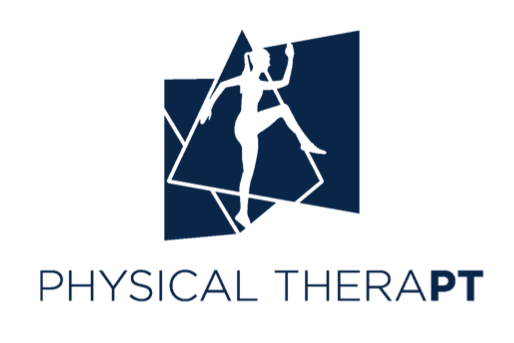Whether you’re a seasoned athlete or simply someone who enjoys staying active, finding the right sports physical therapist can make all the difference in your recovery and performance. Sports physical therapists specialize in treating injuries and optimizing movement for individuals with active lifestyles. They work closely with athletes and fitness enthusiasts to help them get back to their peak condition safely and effectively. But with so many options out there, how do you choose the best one for you? Here’s what to look for when selecting a great sports physical therapist, including key qualities of both the clinician and the practice setting.
The Clinician:
1. Expertise in Sports-Related Injuries and Conditions
A good sports physical therapist has extensive knowledge and experience in managing sports-related injuries. Look for a therapist who:
Has experience treating injuries specific to your sport or activity. For instance, if you’re a runner, a therapist with experience in managing lower extremity injuries, such as shin splints or knee issues, will be invaluable.
Is certified or has a background in sports physical therapy. Certifications like the SCS (Sports Certified Specialist) indicate a strong foundation in sports injury management and rehabilitation.
Understands biomechanics and movement patterns specific to athletic activities. This knowledge is crucial for evaluating how you move and pinpointing any issues that may be causing or exacerbating your injury.
2. A Patient-Centered Approach and Strong Communication Skills
One of the most important qualities of a good sports physical therapist is the ability to listen to and understand your goals, needs, and concerns. Look for a therapist who:
Takes the time to listen to your story and understand how your injury affects your life and sport.
Communicates clearly about your diagnosis, treatment plan, and expected outcomes. They should be able to explain complex concepts in a way that you understand and feel comfortable with.
Values your goals and collaborates with you to create a recovery plan that supports both your short-term and long-term aspirations, whether that’s getting back to training or just enjoying a pain-free workout.
3. Customized, Sport-Specific Treatment Plans
No two injuries are alike, and athletes require specialized care tailored to their sport’s unique demands. A good sports physical therapist will:
Create a customized treatment plan that’s specifically designed to address your injury, taking into account your sport, position, and level of play.
Incorporate sport-specific exercises and progressions. For instance, if you’re a soccer player, your therapist should include drills that mimic the movement patterns used in soccer, like pivoting and kicking.
Focus not only on healing the injury but also on injury prevention. A great therapist will identify areas of weakness or instability that may lead to future issues and work with you to build strength and resilience in those areas.
4. Emphasis on Functional and Return-to-Sport Testing
A skilled sports physical therapist knows that recovery isn’t just about feeling better; it’s about getting back to performing at your best. Look for someone who:
Uses functional testing and return-to-sport assessments to objectively measure your readiness to return to your sport. These assessments help determine if you’re truly ready for the demands of your activity and reduce the risk of re-injury.
Tracks and evaluates progress over time to ensure you’re moving forward with your recovery.
Is willing to adapt the plan based on your progress and any challenges you face along the way.
The Practice Setting:
Alongside the characteristics of the therapist, the practice setting itself plays a crucial role in supporting effective treatment. Here’s what to look for in an ideal sports physical therapy setting:
1. Well-Equipped Facility with Sports-Specific Equipment
A good sports physical therapy clinic will have specialized equipment and spaces that allow for sport-specific rehabilitation. Look for a facility that includes:
Strength and conditioning equipment (like squat racks, resistance bands, free weights) to facilitate sport-specific strengthening and conditioning exercises.
Open space for dynamic exercises such as running, jumping, or agility drills. This allows for a full range of motion activities and sports-specific drills.
Advanced equipment for functional assessments and movement analysis, such as motion capture or force plates, which can provide valuable data on your biomechanics and movement patterns.
2. Collaborative, Interdisciplinary Team
In the best sports physical therapy clinics, therapists often work alongside other health and fitness professionals. This type of collaborative environment can be extremely beneficial if you need additional support, such as:
Sports medicine physicians and orthopedic specialists who can provide input on complex cases or guide the treatment plan based on specific medical needs.
Athletic trainers and strength coaches who can help transition you from rehabilitation to performance training.
Massage therapists who help treat soft tissue injuries and optimize recovery.
Nutritionists and mental health professionals who understand the unique demands placed on athletes and can support holistic recovery and wellness.
3. Emphasis on Education and Injury Prevention
An ideal sports physical therapy practice not only treats injuries but also focuses on educating athletes to prevent future issues. The clinic should provide:
Resources on injury prevention techniques, warm-up and cool-down strategies, and sport-specific conditioning tips.
Access to self-management tools (such as foam rollers, resistance bands, and instructional videos) to help you maintain your progress outside of the clinic.
Follow-up care or programs to support continued improvement after your primary treatment has ended.
Final Thoughts: Finding the Right Fit
Ultimately, finding a good sports physical therapist is about finding someone who understands your sport, values your goals, and has the expertise and resources to support your recovery journey. Take the time to ask questions, explore different clinics, and find a therapist and setting that feels right for you. The right therapist will not only help you recover from injury but also empower you to return stronger, more resilient, and better prepared to reach your full athletic potential.





